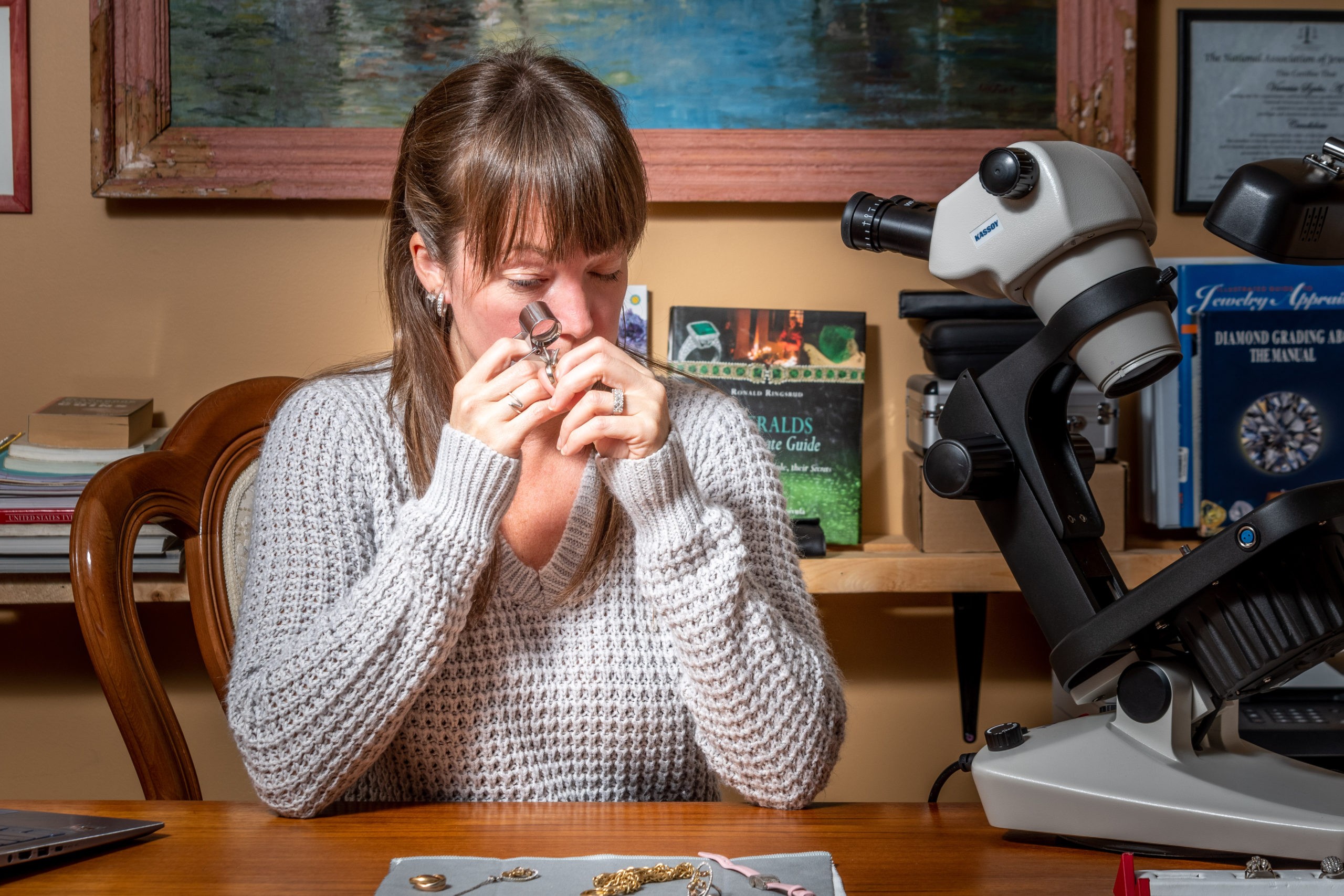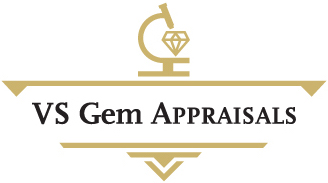You may wish to get your jewellery appraised for a variety of reasons. Perhaps your insurance company requires appraisal documentation for an insurance rider. If you are an executor of a will, the lawyer may request proper documentation for estate probate. You may choose to sell some of your jewellery items and are unsure of what price to sell it for. Having up to date appraisals on all of your jewellery items allows for a smoother and quicker division of assets in the unfortunate event of a divorce. Appraisals are often completed out of interest. Valuations can provide interesting history and information, especially on antique items.
A jeweller is no more a gemologist than a gemologist is a jeweller. This may seem confusing but a jeweller is typically trained in the guild of jewellery design and repairs and not in evaluating gemstones. A gemologist is specifically trained in the art of identifying types of gemstones, the 4 C’s of diamonds, natural vs lab created gemstones and appraisal theory & ethics. It takes specific gemology equipment to properly identify gemstones and the means to access information on diamond & gemstone pricing. Most importantly a well-trained gemologist appraiser understands current market trends, how to analyze and access auction results and can properly evaluate antique & vintage jewellery; all of which are vital to ensuring a proper value.
There are 3 types of value to be determined when doing an appraisal. The first step in the appraisal process is determining what the purpose of the appraisal is. The most common type of appraisal is known as Retail Replacement Value. The function of this type of appraisal is typically for insurance purposes. In the event that your item is lost or stolen a proper appraisal will provide your insurance company with all of the relative information to insure you receive a like, kind & quality replacement.
The next most common type of appraisal is know as a Fair Market Value. This value is used to determine a fair price that an item can sell for between a willing buyer and a willing seller. This type of appraisal is used in estate and divorce appraisals.
Finally, there is liquidation value. As you may have guessed this value is used in a distress sale when time in of essence. Bankruptcy, or a need for immediate cash typically requires a liquidation appraisal.
Each appraisal may contain the following elements:
It is recommended that you have your appraisal redone every 2 years. The reason being is that the price of precious metals, such as gold & platinum, along with the prices of diamonds & gemstones fluctuate. Since insurance premiums are based on the value of the appraisal you want to be sure you are not paying too high of a premium. In the unlikely event that you need to file a claim you want to be sure that item is not uninsured, causing you to pay out of pocket.
It is typically not recommended to have an appraisal reported completed for silver jewellery. The reason for this is that there is an extraordinary large difference between the price of gold & the price of silver. However if you have a unique, antique item of fine providence than it would be suggested to appraise such a piece.
What about silver flatware? Yes, we do appraise silver flatware and other finely crafted pieces of silver. Typically we will see these types of silver items in estate appraisals.
Many jewellers and jewellery stores will often supply an appraisal complimentary with purchase. It is always advisable to have a second opinion to confirm quality and value. An appraisal by an independent appraiser is completely unbiased. We take the time to properly examine your items, answer your questions, and complete a detailed report.
I recommend before you do any repairs to your ring that you first have a diamond plot completed. A diamond is like a fingerprint, where no two are alike. A diamond plot is a diagram of the inclusions your diamond has. After your repair, a gemologist can use the plot to identify your diamond.
The designation of Registered Master Valuer is earned by qualified Gemmologists who have successfully completed the Master Valuer jewellery appraisal study program. This is a comprehensive appraisal program that includes learning appraisal methodology for writing appraisals of all types – insurance, estate, donation, probate
The RMV program is recognized by every responsible gem and jewelry organization in the world and is endorsed by the Canadian Jewellers Association
Vanessa is a Registered Master Valuer with the Registered Number 062021255

